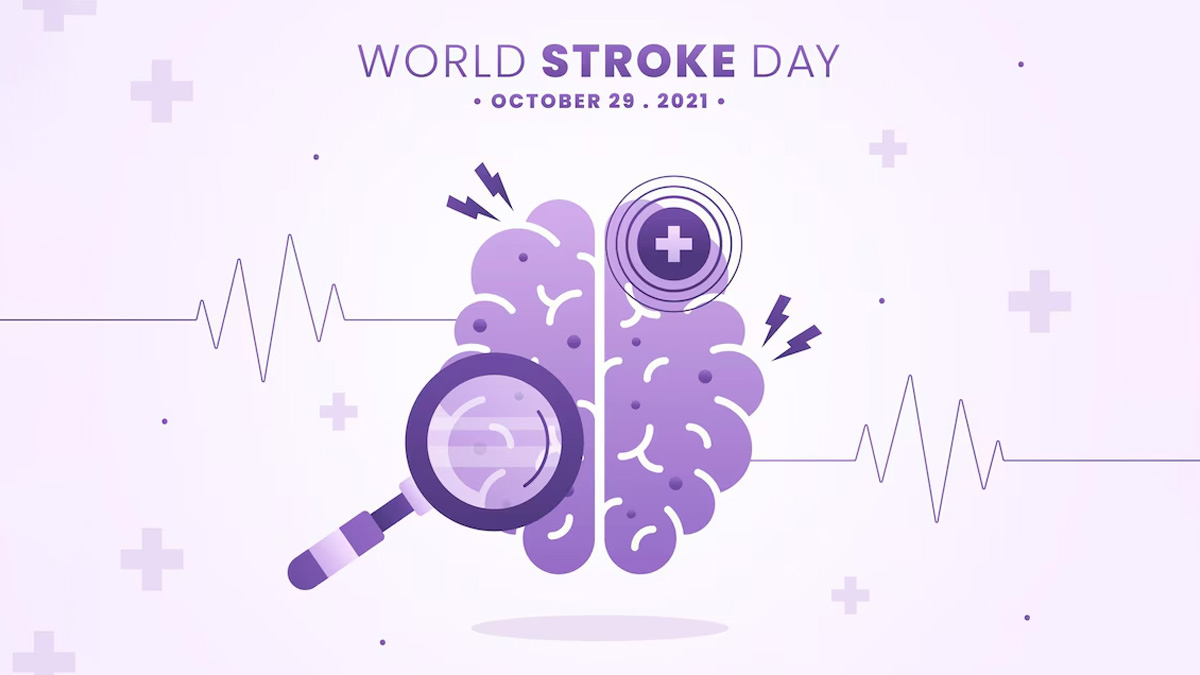
For many, a sleepless night might feel like an inconvenience they can push through the next day. However, when insomnia becomes a regular part of life, its effects go beyond just feeling tired; it can silently increase the risk of serious heart conditions, including heart attacks and strokes. By raising stress hormones, disrupting metabolism, and affecting mental well-being, insomnia can put the heart under significant strain.
Table of Content:-
This World Stroke Day, we spoke to Dr Aravind Badiger, Technical Director, BDR Pharmaceuticals, who shed light on how chronic insomnia impacts heart health. Understanding these hidden risks and exploring effective treatments can be a crucial step toward better health and sleep.
Biological Impact of Insomnia on the Heart

When someone experiences chronic insomnia, their body remains in a prolonged state of stress, triggering the release of cortisol and other stress hormones.” Over time, elevated cortisol levels lead to consistently high blood pressure, increased heart rate, and heightened risk for atherosclerosis—a condition in which plaque builds up in the arteries, narrowing them and raising the chances of a heart attack or stroke. Atherosclerosis is often the first step toward cardiovascular events, and insomnia plays a pivotal role in its development,” said Dr Badiger.
Insomnia also disrupts the body’s metabolic processes, which can lead to weight gain, obesity, and even type 2 diabetes. Both obesity and diabetes are major risk factors for cardiovascular disease, amplifying the dangers posed by chronic insomnia.
Also Read: Stroke And Immunity: Expert Explains How Stroke Affects Your Immune System And Management Measures
Psychological Effects and Heart Health

Beyond physical health, insomnia is closely linked to mental health challenges, particularly anxiety and depression. Persistent sleeplessness heightens the risk of developing these conditions, which also take a toll on cardiovascular health.
Mental health issues can lead to increased inflammation in the body, which is another risk factor for heart disease. “Additionally, people who struggle with insomnia and mental health challenges may adopt less healthy lifestyles, potentially consuming poor diets, avoiding exercise, or turning to alcohol or smoking as coping mechanisms. These lifestyle factors further elevate the risks of cardiovascular diseases,” said Dr Badiger.
The relationship between insomnia and cardiovascular disease is mutual. For instance, individuals with heart disease often report issues with sleep, which in turn exacerbates both insomnia and cardiovascular health issues.
Link Between Insomnia and Cardiovascular Incidents
“Research and public health data underscore the alarming connection between insomnia and cardiovascular risks. According to recent government health advisories, chronic insomnia can increase the risk of heart disease by up to 45% and significantly raises the likelihood of experiencing a stroke,” added Dr Badiger.
These results paint a grim picture of why sleep disorders should be accorded the attention they deserve in terms of public health.
Also Read: Expert Debunks Common Misconceptions About Strokes That Need To Be Addressed
Effective Treatments for Insomnia and Cardiovascular Risk Reduction

Treatments for insomnia are advancing, with options that target both the psychological and physiological contributors to sleep disturbances. Cognitive Behavioral Therapy for Insomnia (CBT-I) is a non-drug therapy proven effective in improving sleep quality and reducing insomnia symptoms.
According to a 2015 meta-analysis of 20 randomised controlled trials examining CBT-I in patients with chronic insomnia reported an average reduction of 19 minutes in the time taken to fall asleep and a 26-minute decrease in the time awake after initially falling asleep. Additionally, total sleep duration increased by 8 minutes, and sleep efficiency improved by 10%.
Also, pharmaceutical developments are offering more targeted and safer medications for short-term insomnia relief. Newer drugs that selectively target receptors in the brain provide sleep support without the side effects often associated with traditional sedatives.
Role of the Pharmaceutical Industry in Addressing Insomnia and Cardiovascular Risks
The Indian pharmaceutical industry is making a breakthrough in advancing affordable remedies for insomnia and cardiovascular illnesses. Therefore, awareness and early diagnosis as a key driver to prevent these health risks have significant input from the pharmaceutical industry. “Currently, both disorders are on the rise in India, and the need for integrated pharmaceutical and non-pharmacological treatment is mandatory to reduce the frequency of heart attacks and strokes linked to insomnia,” highlighted Dr Badiger.
[Disclaimer: This article contains information provided by an expert and is for informational purposes only. Hence, we advise you to consult your own professional if you are dealing with any health issues to avoid complications.]
Also watch this video
How we keep this article up to date:
We work with experts and keep a close eye on the latest in health and wellness. Whenever there is a new research or helpful information, we update our articles with accurate and useful advice.
Current Version